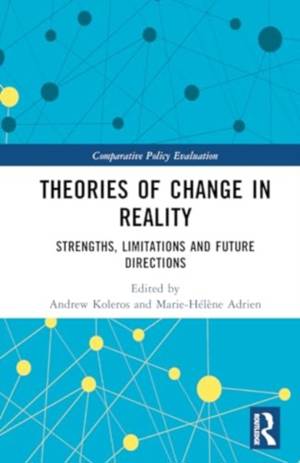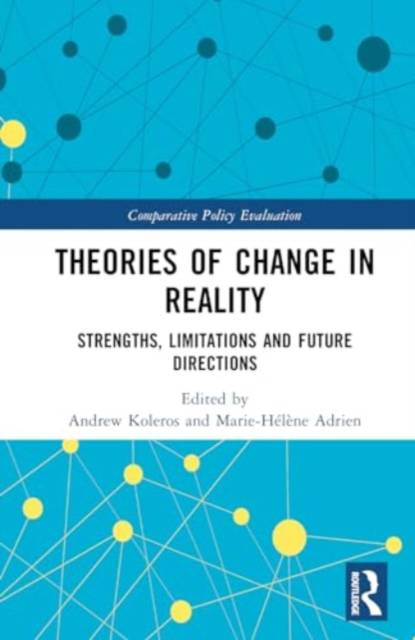
- Retrait gratuit dans votre magasin Club
- 7.000.000 titres dans notre catalogue
- Payer en toute sécurité
- Toujours un magasin près de chez vous
- Retrait gratuit dans votre magasin Club
- 7.000.0000 titres dans notre catalogue
- Payer en toute sécurité
- Toujours un magasin près de chez vous
Theories of Change in Reality
Strengths, Limitations and Future Directions
Description
For over 50 years, evaluators have used theories of change to articulate the causal logic underpinning how an intervention is intended to bring about a desired change. From its origins in programme evaluation, the approach has been adopted more widely for purposes from program design to program management. As theories of change continue to be used for multiple purposes, it is an opportune moment for the evaluation community--where the approach originated--to provide their perspective on the strengths and limitations of the approach and its future directions. To provide these perspectives, we asked nearly 30 of the world's leading evaluators and programme theorists to provide a short essay on the past, present, and future of theories of change. This book presents their insights organized into five main themes: the use of theories of change in broader public policy contexts; using theories of change to establish causality; developing theories of change reflective of multiple stakeholder perspectives; using theories of change to understand wider societal change processes; and applying theories of change approaches for multiple purposes. By sharing these diverse perspectives, the book aims to both provide evaluators and emerging programme theorists with critical perspectives to inform future practice.
The Open Access version of this book, available at www.taylorfrancis.com, has been made available under a Creative Commons Attribution-Non Commercial-No Derivatives (CC-BY-NC-ND) 4.0 license.
Spécifications
Parties prenantes
- Editeur:
Contenu
- Nombre de pages :
- 266
- Langue:
- Anglais
- Collection :
Caractéristiques
- EAN:
- 9781032669588
- Date de parution :
- 07-06-24
- Format:
- Livre relié
- Format numérique:
- Genaaid
- Dimensions :
- 152 mm x 229 mm
- Poids :
- 452 g

Les avis
Nous publions uniquement les avis qui respectent les conditions requises. Consultez nos conditions pour les avis.





